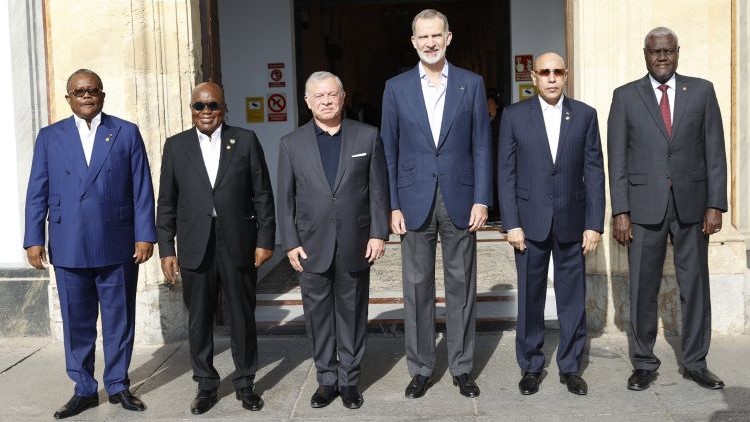The Diplomat
King Felipe VI of Spain and King Abdullah II of Jordan chaired yesterday in Cordoba a new round of the meetings of the Aqaba Process, organized by both countries and in which, according to the Minister of Foreign Affairs, Jose Manuel Albares, the attendees agreed on the need for international cooperation “against terrorism, jihadism and radicalization”.
The meeting was held at the Palacio de la Merced, headquarters of the Provincial Council of Cordoba, and was dedicated to West Africa and Sahel. During the session, the nearly 200 participants discussed current efforts to combat terrorism and extremism and how to improve coordination in this area, according to the Jordanian government.
Also discussed during the meeting was networking among West African countries to limit the spread of terrorist groups and their influence on the ground and to tackle hate speech and extremism on the Internet and social networks. Emphasis was also placed on continuing cooperation and exchange of experiences and attracting more countries and international organizations to the meetings of the Aqaba Process.
The Aqaba Process was launched by Abdullah II in 2015 to enhance military and security coordination and cooperation and exchange knowledge and information among various regional and international parties in the fight against terrorism and extremism. To date, meetings of the Aqaba Process have been held in Jordan as well as in Indonesia, Albania, the Netherlands, Nigeria, the United States, the UN General Assembly, Singapore and, in this case, Spain. Previous rounds focused on East Africa, Southeast Asia, Latin America and the Balkans.
Among the more than thirty delegations attending the meeting were, apart from the King of Spain, the King of Jordan and Minister Albares, the presidents of Ghana, Nana Akufo-Addo; Guinea-Bissau, Umaro Sissoco Embaló; Mauritania, Mohamed Ould Ghazouani, and of the African Union Commission, Moussa Faki, as well as representatives of the EU, the African Union and NATO.
In declarations to the press at the end of the meeting, José Manuel Albares declared that the meeting had been “very positive”, that “all” the participants were “in agreement in working and rowing together in this objective of fighting terrorism and radicalization” and that “the information shared between the countries is very fruitful”.
Likewise, the minister specified that it was not possible for him to reveal the contents of the discussions (held behind closed doors and with much secrecy), but he could convey the spirit of the debates: “Those of us who are here understand that, in the face of terrorism, jihadism and radicalization, international cooperation is the most important thing”, declared Albares. In this sense, the Foreign Affairs Minister did not hesitate to give Pedro Sánchez’s own government as an example of this policy. “Just as the Spanish Government has done with a Cooperation Law that puts the Sahel and West Africa at the center, there can be no security without development in the same way that there can be no development without security,” he said.







